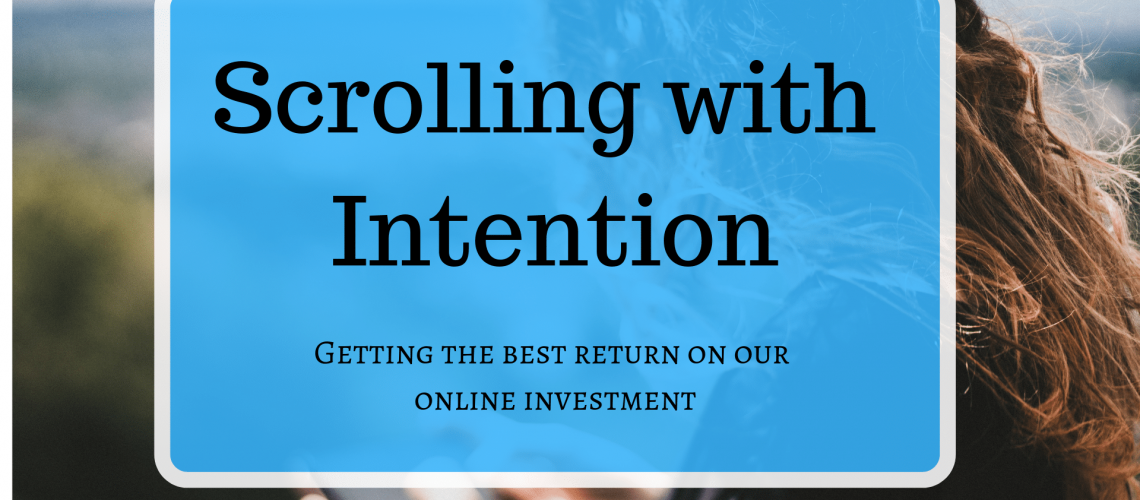Are we worried about the time we spend online? Should we take heed of warnings by media reports and popular articles that put the sole blame of an anxious and depressed society onto a small gadget? Are we losing the art of conversation? Will our children become addicted? Are we running out of time to do everything else?
Well, if you have been following me for a while you will know that I generally shy away from these alarmist headlines. Firstly, the research and data is never convincing. And secondly, I don’t believe it does us any good to just focus on the negative aspects of a digital world. After all, it is most certainly here to stay, so let’s focus on ways we can work with it, rather than constantly pushing back against it.
But of course, there are certainly concerns we need to address and challenges we need to tackle. Given we now have iOS updates that allow us to track our time online, and we are given the option of setting time limits for certain apps and our access is shut down when a quota is met, this certainly suggests there is a feeling amongst us, that we have a problem.
We are not going to do away with our phones anytime soon. We are not going to live completely screen free lives. So what should we do instead?
For me and hopefully for the parents and students I work with, I think it must come back to using our screens with greater intention.
We need to look at exactly what it is we are spending our time on and have a greater awareness around how that time can be best spent. In other words, we want the greatest outcomes on investment for that precious physical, cognitive, social and emotional energy.
So once we look at how, what, where, when and with whom we are spending our time online, we can start to make some better choices around the benefits we are getting in return.
We might want to ask ourselves…..
Are we mindlessly scrolling?
Are we just scrolling the feeds of people we don’t really have a connection to? Business we will never buy from? Celebrities we will never relate to? Status updates of stuff we don’t really need to see on a daily basis? Are we just scrolling on by hoping to be awakened by something that catches our attention for longer than a millisecond?
Who are we following and why?
Are the people you follow providing you with support, friendship and connection, are they teaching you, motivating you, challenging you or inspiring you? Are they possibly people you can help or support? If so, then the time you spend engaging with them is likely to be worth that investment. If however, you have no real connection, they say things that upset you, they erode your sense of self esteem, they bring down you mood, they make you feel less than worthy, then they are not a good investment. Cull them now and tidy up your feeds.
What are we consuming?
Is the media you read or watch balanced and truthful? Should you be seeking a wider variety of news or opinion? Are you reading the same sorts of things over and over? Would it pay you to be a little more intentional about how you receive and form your view of the world?
What exactly are we spending our time on?
Surfing the net may certainly be a very worthwhile way to spend your day. You may be researching, learning a new language, collating home videos, playing a game that relaxes you and relieves stress. You may be entertained in ways that give you enjoyment and add positivity to your day. But maybe there are games to play that are more creative or challenging? Maybe watching some dude unbox toys is not the most productive use of your time. Maybe there is a better way to spend your time than clicking through Facebook posts to determine which member of the Royal family you most look alike, or how many children is the perfect number for you (as a mother to 5 boys it is rather unsettling to discover that 2 was indeed a perfect number for me!).
If we pay attention to how we are using our devices, be aware of the affects those experiences are having on us, then we can care less about addictions and time wasting and overuse. We can also care less about bullying and comparison and judgment and exclusion, because we will already be addressing these people and situations as unworthy recipients of our time. Not always an easy task I know. We are working against systems that are very clever at rewarding our brains, making it harder and harder to avoid the pull.
But let’s try and move some of that online attention to greater intention ……and enjoy a positive, balanced relationship with the screens.

